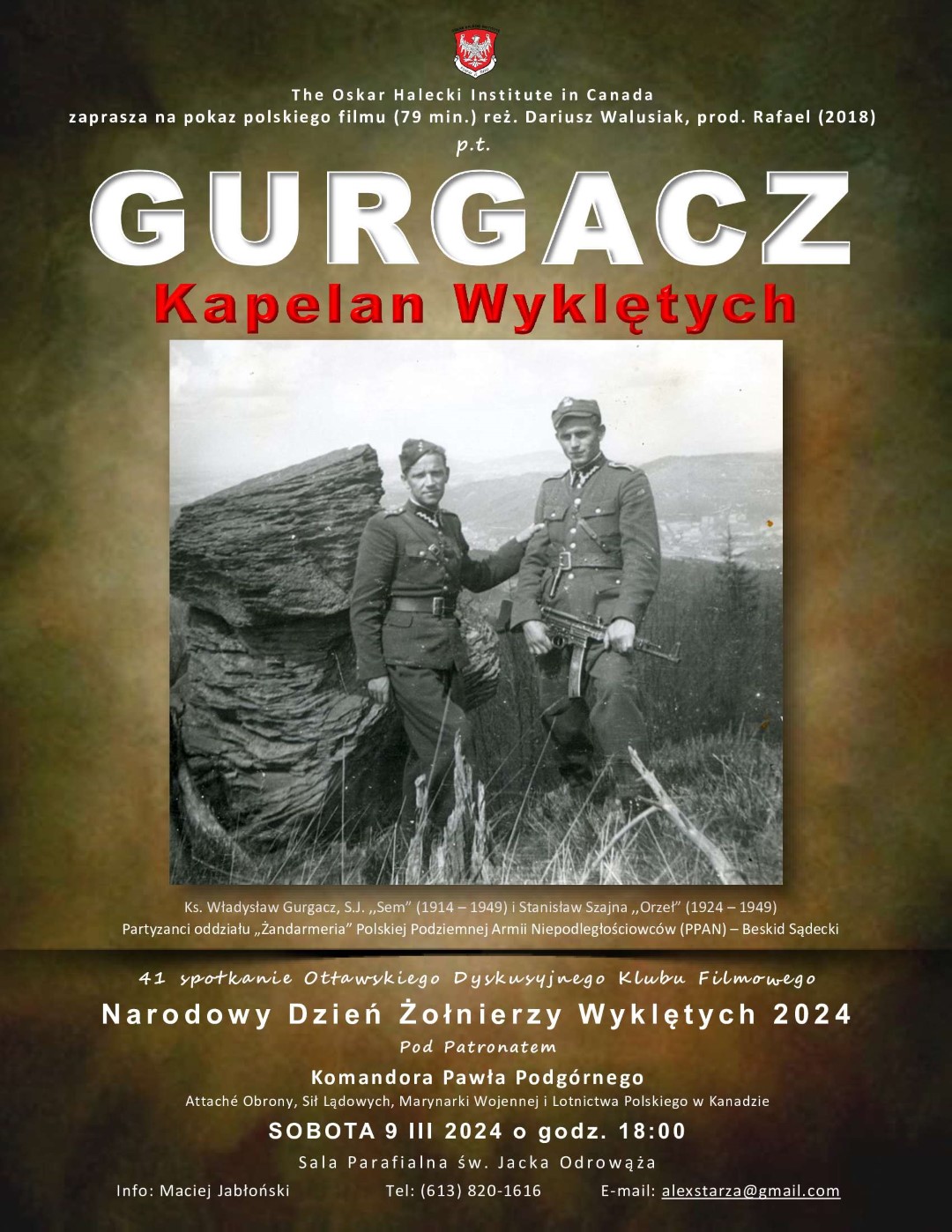
Born on 26 July 1913 in Włocławek, region Kujawy, Poland, and died on 15 October 2010 in Ottawa, Ontario, Canada, and was buried at Pinecrest Cemetery in Ottawa. Served in the National Military Organization (Narodowa Organizacja Wojskowa (NOW)) and in the Home Army (Armia Krajowa (AK)). She was the daughter of Szczepan Mieczysław and Józefa (Ziuta) neé Wróblewska. Her father was of the landed gentry nobility, Polish coat-of-arms Ślepowron, of the Turnipadły estates in the region of Kujawy. She was raised in the spirit of patriotism and devotion to God.
Education
After graduating from high school in Bydgoszcz, she studied at the University of Warsaw until 1939. In 1947, she graduated with a licentiate degree in Romance languages from Université libre de Bruxelles in Belgium.
Pre-war activities
A member of the Christian students’ national organizations, and a competitor in athletics with the Academic Sports Association (Akademicki Związek Sportowy (AZS)).
The War
In 1939, shortly before the outbreak of WWII, she volunteered to serve as military nurse for the Polish Army. During the September Campaign, she served as emergency health nurse for the Independent Operational Group Polesie lead by Brygadier General Franciszek Kleeberg; and participated actively in the bloody and victorious battle of Kock on 6 October 1939. She was held in German capture but managed to escape and return to Kujawy. She witnessed her father being murdered by the Germans after he refused to bow to them. She joined the National Military Organization (NOW) and the Home Army (Armia Krajowa (AK)).
During the Warsaw Uprising she was a radio operator for the “Kiliński” Battalion. After the fall of the uprising, she remained in German captivity until the liberation by the American allies in 1945.
Post-war activities
Belgium
After the war, she settled in Belgium. She worked for the Belgian Red Cross, and later, for the International Underground Coal Gasification Society in Liége, Walloon. During that time, she met her future husband Jerzy Ruebenbauer, who was working as an research assistant at the School of Engineering of the University of Liége. Soon after getting married, they emigrated to Canada.
Canada
Mrs. Ruebenbauer and her husband settled in Montréal where there was a large Polish community of veterans, engineers and scientists. Mrs. Ruebenbauer started working as a legal assistant at a law firm, and was also a French language teacher. She moved to Ottawa after her husband was offered a position at the Department of Public Works of Canadian Government. She taught French at the YWCA for two more years. At the beginning of the 1950s, she became actively involved in the cultural life of the Polish community in the National Capital Region. The Ruebenbauers established the Ottawa Branch of the Canadian Polish Congress, and they revived the activities of the Ottawa Polish Canadian Club that was established in 1938. Their residence, located at 307 First Avenue in the Victorian Glebe, became an important center for the Ottawa’s Polish community. The cultural activities organized by the Ruebenbauer tandem included concerts and fundraisers for various causes. The couple also participated in the activities supporting the development of the St. Hyacinth R. C. Polish Church.
Their most significant achievements were as follows: organizing the Millennium of Christian Poland Jubilee in Ottawa during the period from 1962 to 1967; fundraising for the Polish National Treasure in London (Skarb Narodowy); setting up the charities for the Polish libraries in Montréal and Paris, and the Polish Social and Cultural Association in London. During the martial law in Poland restricting the Solidarity movement, fundraising for the medical supplies and equipment; collecting donations for the poor and orphans living in Belarus, Lithuania, Poland and Ukraine. In cooperation with the Canadian Centre for Folk Studies at the National Museum of Man, the Ruebenbauers organized art expositions and philatelic exhibitions, musical concerts (e.g. Marek Jablonski’s piano recital in the National Arts Centre in Ottawa). After her husband’s passing in 1998, Mrs. Ruebenbauer with a group of friends launched a private Rübenbauer Foundation to support the Polish heritage in Canada. The foundation was announced during a banquet event that was organized at the Museum of Man to celebrate the 60th anniversary of the Polish Institute of Arts and Sciences.
Awards
- Armia Krajowa Cross
- Warsaw Cross of the Uprising
- The Canadian Polish Congress Golden Award
Publications
Mrs. Reubenbauer wrote numerous articles for the Polish newspapers and magazines about the Polish community in Ottawa. Several chapters were published in the commemorative book Domino Deo Nostro issued to celebrate the 2th anniversary of St. Hyacinth R.C. Polish Church in Ottawa.
Family
In 1949, she married Jerzy Ruebenbauer, an engineer, a national activist who was well-known in Poland and in the Polish community abroad. They had no children. Mrs. Ruebenbauer had one sister Irena Kłodnicka who died in Rockport, Massachusetts, USA.
Bibliography
Jabłoński, A. M. Dr. Pożegnanie Zofii Kuczyńskiej, h. Ślepowron, Ruebenbauerowej. MS. Ottawa. 2010.
Księga Pamiątkowa na 25-lecie Parafii św. Jacka Odrowąża. Domino Deo Nostro, 1957-1982. Ottawa. 1982.
Węgierski, Edward. I o nich musimy pamiętać. Polityczni działacze narodowi. Dom Wydawniczy Ostoja. Krzeszowice. 2014
/AMJ/
English Translation /SH/















